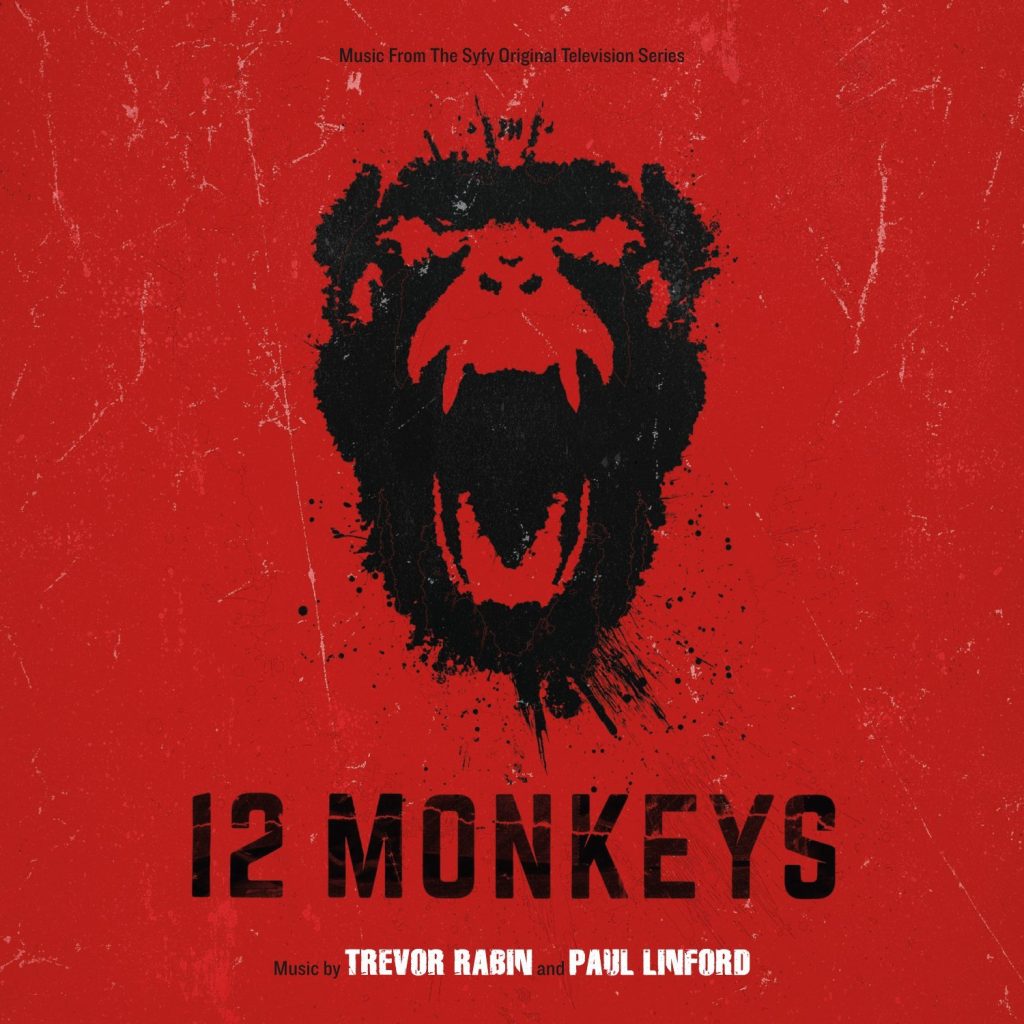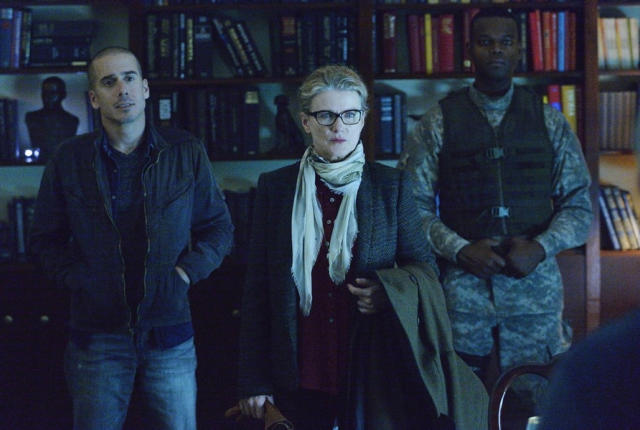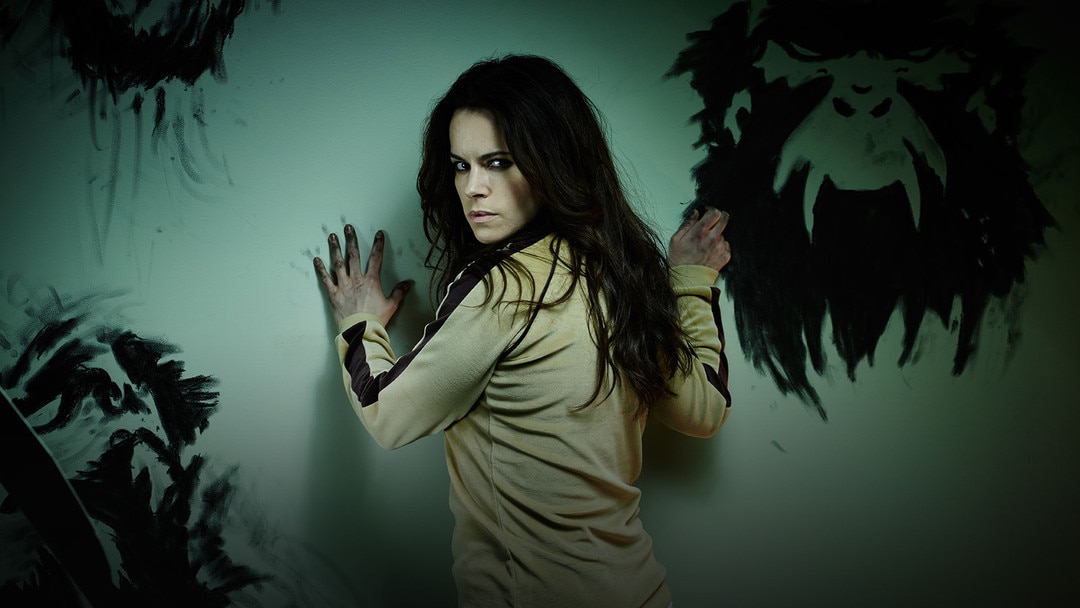Originally I was planning to at least write about the first episode of the show but then...well, I was lacking in spoons to undertake the task of recapping. So now that the score album is out I thought I would chronicle my impressions regarding those themes and cues which were chosen for the album, and their resonance within the series.
Here is the way in which Trevor described the score in the attendant press release:
“The 12 Monkeys score, which I’m doing with my long time assistant and collaborator Paul Linford, is a hybrid score of ethnic sounds, orchestra, and electronic, with a strong theme base,” said Rabin.
This particular formula is something which can be said to describe two other genre films which Trevor and Paul worked on: The 6th Day and The One. In the scoring commentary track Trevor provided for The 6th Day home video release he makes special note of some of the percussive elements. In another quote from the press release, stating that he and Paul played most of the instrumentation, he noted that his long-time friend and collaborator Lou Molino III also contributed percussion (as he has on other scoring work previously) and that the choice of such instruments "gives the music a far more organic feel."
Utilizing what can be considered more "primitive" technology is an easy way to evoke retro-futurism; for example, the use of vintage synth samples in Race to Witch Mountain is evocative of the alien plot point. 12 Monkeys uses this construct in regards to the future portrayed in the show, as much of humanity has fallen victim to a global pandemic and therefore centers of civilization and technology have devolved to chaos and ruin and now there are clusters and cults remaining rather than communities and cities. Although the show means to replicate the span and scale of the original film, they can't, and it shows. This doesn't mean it doesn't try, however, and one of the ways in which they did was by hiring Trevor and Paul because they have a specific cinematic sensibility which can make a show seem larger than it really is. This same strategy was applied to Zero Hour, although I think a better use of scoring is part of what makes 12 Monkeys successful where the former was not (but, naturally, having a show with decent performances and production values and scripts, and a distinct lack of wackiness is also helpful).
To begin with the main theme, "I Am The Clock," it embodies the sense of urgency inherent in the main storyline, a sense of time and movement, a sense of dramatic tension but is also just a damn catchy tune. But then it segues into a more stately reflective movement before returning to that same percussive sequence, to acknowledge that the movement of the narrative is also dynamic. But it's not overly dramatic for the sake of being dramatic. This track also functions as the score suite, so it contains elements of other themes from the entire season. Trevor, ever a friend to melody, knows that people don't go home (or change the channel) humming the lights; meaning: it's important to present a melody which - as the main thematic motif - needs to resonate within the audience, as it will be recalled at different times throughout the season (and the series, one imagines) entire. And every time it does come back it reinforces those primary narrative values.
"Do You Believe in Fate?" combines elements of orchestra, percussion and ambiance to evoke the slippery notion of relationships, to my mind. One is never quite assured of one's allies and enemies in this show. In the episode "Splinter" its' use underscores Cole's dissociative state of mind as a man caught between two different timelines. There is menace and longing in equal measure, especially in the second half of the theme. The same formula is evident in "Cole On The Move," but more suited to considerations of action. "The Future Is History" contains more of an electronica chill, and I believe this is Paul's territory, as he contributes many of the more ambient/electronica motifs in Trevor's scores, although most of them are incidental music. But then a bit of the main theme weaves its' way through along with the persistent "ticking" again meant to remind us that time is the true enemy in this story even as Cole is not a man bound by time, according to Dr. Jones. The layering of various textural elements is important in this respect as well, to give a sense of a larger construct.
I like the way incidental music is utilized in the episodes as well, it's entirely contextual rather than simply layered over a scene, which in turn preserves the overall mood and resonance of the score when it is used.
There are a number of percussive motifs throughout the score as a whole: some serve to build to a greater climax for action scenes, others provide an underlying sense of urgency, and still others evoke menace or tension or sadness. A chiming effect - a type of which Trevor used for emotional underscoring in "Rescue" on Jacaranda - provokes any number of reactions in a listener, and therefore is inherently compelling. "The Monkeys On The Wall" is a great example of the use of the time-bound thematic element, with a transition from percussion to a piano and orchestral movement. The percussion motif returns at the end to provide a dramatic lift.
It can be posited that nearly every character is a tragic character in one way or another, but the way in which this is expressed in "Katarina (Jones' Theme)," for example, is especially poignant, as viewers learn throughout the season just how much Dr. Jones has sacrificed to make Project Splinter a reality, and possibly humanity's last hope.
The interesting element to consider is that this is not merely a collection of every major theme and cue from two hours of film, but rather thirteen hours of film, the context of television series scoring enables an album of longer themes, as there is likely to be at least one in every episode. The album contains 23 tracks, so it's a reasonable assumption that the central theme for every episode was included, if applicable. Very few of the shorter cues were chosen, and of those included, like "Temporal Frustrations" and "Time Is Cruel," are selected because they are interesting and memorable even for their short spans, underscoring what is occurring onscreen. "Railly Meets Jones," for example, is one of the most interesting in that it takes both character's themes and blends them into one of the more beautiful moments of the score.
What I find interesting about the theme which is used to represent the most menacing character - "The Pallid Man" - it is not wholly frightening, there is a deeper sense of drama as well as echoes of other themes. I appreciate that even the character cues are somewhat ambiguous in their sonic portrayals. The use of sonic space in this theme is interesting, because the character is meant to be a cipher, and the sense of blankness and absence-in-presence is portrayed effectively.
At some point I would like to write about what I consider the best episode of season one -"The Keys" - and "It Was The Keys" resonates with all its inherent emotional power not only as a part of that narrative continuum, but also the way in which that specific episode portrays considerations of time, memory and distance. It is the emotional heart of this score as a whole, in my opinion. Another episode-related theme, "Atari," portrays the specific tensions of the world of the narrative, and how they impact Cole and Ramse, with an almost Arabic classical music influence.
"Goodbye Cole" is particularly special because it features a bit of guitar but also it has a very evocative melody, a portrayal of what Cole's traveling through time does not only to himself, but the people he leaves behind. "Spearhead" is an interesting take on the main theme, also recalling elements of "The Future Is History." "Jennifer Takeover" features a great voicing of its melody, I appreciate the touches of woodwinds among the electronica and percussive elements. There's also a great bass motif which comes out in the second half of the cue. The use of the violin and piano in "The Night Room" is classic Trevor to my mind, it's almost out of Armageddon.
Interesting textures of all kinds also dominate "The Cycle Is Complete," tying together many of the motifs offered throughout the series, which is what a good closing theme should do of course. That Rabin-esque sense of grandeur is also apparent in the way the orchestral and voice elements lift the theme to a more triumphant air. The track as a whole is simply gorgeous, and the primary reason why I love Trevor's scoring so much.
As I noted, the score for this series is used to memorable effect, it provides emotional resonance and support for the plot and characters, and it is certainly a credit to Trevor and Paul that they managed to maintain consistent and compelling quality over an entire season, and I'm looking forward to the further development of all of these elements in season two.



